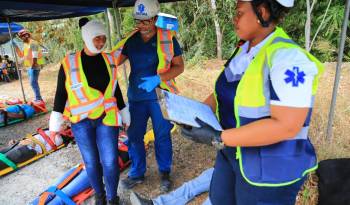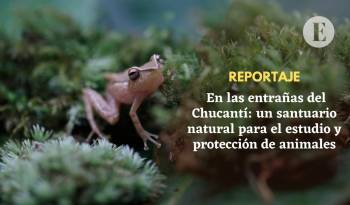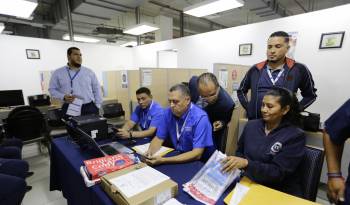Concesionaria Madden Colón llevó a cabo un simulacro de accidente sobre la autopista como fase final del Curso de Formación de Brigadas de Emergencias,...
- 14/09/2009 02:00
- 14/09/2009 02:00
PANAMA. Panama will contract an extra 300 medical professionals to help in the fight against swine flu, the Ministry of Health (MINSA) said.
In additon, $11 million dollars will be made available to improve health facilities in high risk areas.
According to Felix Bonilla, MINSA general secretary, “The government does not want A/H1N1 influenza to get out of control and for this reason we plan to contract more medical personnel including doctors, nurses, health workers and assistants,” he said.
Last week, two babies died and eight new cases of the virus were reported in the Ngöbe Buglé comarca. Many indigenous people in these and other similar high risk areas, particularly in Bocas del Toro, Chiriquí and Veraguas provinces, live in extreme poverty with poor standards of hygiene and high levels of mal-nutrition, making them more vulnerable to disease and complications.
MINSA’s chief epidemiologist, Gladys Guerrero said that health centres in these areas are mostly ill-equipped and in many cases do not have the necessary intensive care units or ventilation machines that are needed to treat severe cases of swine flu.
“The indigenous areas generally just have health centres” that can offer only the most basic care.
“We’re sending doctors in, as well as fever and rehydration medicines and other equipment,” she said
The first vaccines against swine flu are expected to arrive in Panama at the end of the year. However, it will probably not be until 2010 when the first people will be vaccinated, and it is not yet clear who will be given priority.
In the meantime, the global race to produce vaccines is on and shares in many drug companies are going up.
Several US and other trials confirmed last week that only one dose of the vaccine is is needed to protect people, U.S. health officials said on Friday.
A spokesperson said the immune response was quick with people appearing to be protected eight to 10 days after being vaccinated.
In Panama, to date, 10 people have died and there have been 729 reported cases of the A/H1N1 virus. More than half of these - 397 cases(54.5 percent) are in children under 15.
Worldwide, the virus has killed at least 3,205 people since emerging last April in North America and is the predominant flu virus circulating in both hemispheres, according to WHO's latest weekly update issued on Friday.
The new H1N1 strain of flu, declared a pandemic in June, could eventually infect one third of the world's population, or 2 billion people, according to the World Health Organization.


















